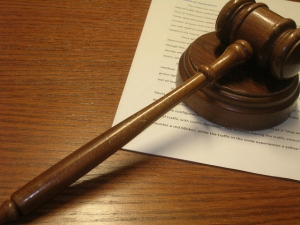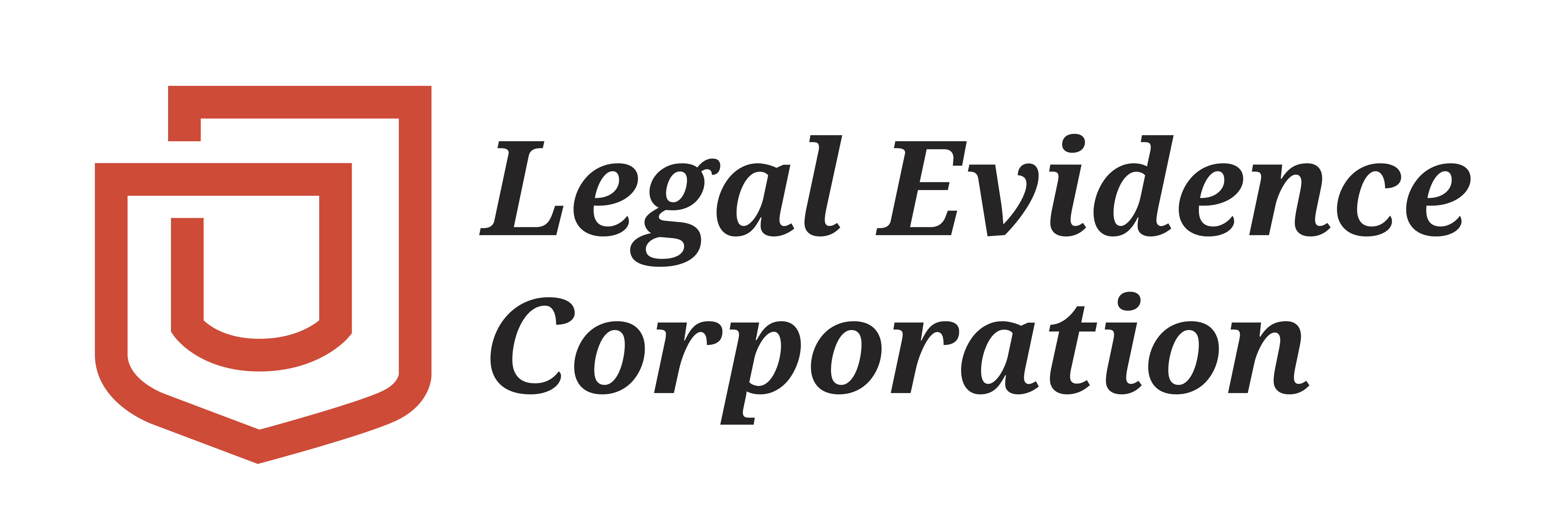 Legal Evidence Corp The field of Digital Forensics, responsible for developing technology and techniques to identify, extract, classify, and preserve electronically stored information has grown dramatically, and only a handful of firms are qualified to meet the court’s mandates.
Legal Evidence Corp The field of Digital Forensics, responsible for developing technology and techniques to identify, extract, classify, and preserve electronically stored information has grown dramatically, and only a handful of firms are qualified to meet the court’s mandates. 
LegalEvidenceCorp
Internet Defamation - Legal Recourse
In previous posts I touched on the unsettling reality that involving Internet defamation can have a devastating impact on a Company and individual’s reputation.The harmful effects to a business and reputation are only compounded when Company’s allow the defamatory content to fester and remain in online space, risking that possibility that each day a new volume of online users will come across it. Online users that come across the defamatory content will undeniably form an unflattering opinion about that company. To backtrack for informational purposes, defamation is defined as the act of making untrue statements about another which damages his/her reputation. If the defamatory statement is printed or broadcast over the media it is libel and, if only oral, it is slander. Internet defamation would fall under the libel category.
There may be additional requirements varying from state to state, but generally, whether you are the victim of internet defamation or being wrongfully accused of internet defamation, you need to understand the law. In order for a comment, post or article to constitute internet libel, the following elements must typically be met:
- The first thing you must prove is that the statement constitutes a false statement of fact. A fact is different than an opinion. A fact can be proven true or false. Opinions are typically not actionable as defamation.
- The false statement of fact must harm your reputation. There are many false statements posted across the internet. In order to constitute libel, a statement must not only be false but must harm you or your company’s reputation and cause harm.
- The false statement of fact causing harm must be made without adequate due diligence or research into the truthfulness of the statement. Alternatively, plaintiffs often attempt to prove that the false statement of fact was made with full knowledge of its falsity.
- If the person who is the subject of the false statement of fact is a celebrity or public official, the plaintiff must also prove “malice.” Malice is proven when the person posting the information on the internet intended to do harm or acted with reckless disregard of the truth in making the statements.
Legal recourse after employee data theft has occurred
In previous blog posts we covered the in’s and out’s regarding employee’s stealing confidential company information (hyperlink) and the role of forensics after employee data theft has occurred (hyperlink). To provide some context, we discussed how having the most efficient and thorough internal policy or preventive measures in place can still result in employee data theft. It may be unsettling to realize that a resourceful and persistent employee may inevitably be able to steal Company data. The role of computer forensics is pivotal in helping to gather information and evidence about the perpetrator, which enables the employer to seek legal redress. Legal Remedies may include monetary damages or an injunction.
Unfortunately, many employers do not realize an employee has taken confidential information until weeks or months have passed and this will hinder any legal claim. As is the case in most legal settings, by altering the former employee’s computer it will diminish the value of the evidence uncovered and consequently prevent a successful claim. That is why digital forensics Corporation recommends preserving the digital contents of a former employee’s computer by making a forensics copy of the hard drive or mobile device. Should suspicions arise in the future concerning theft of confidential information or other potential causes of action, the evidence obtained from a forensic examination conducted on the hard drive “mirror” will be as credible in Court as if the original hard drive had been preserved and examined.
The Role of forensics after employee data theft has occurred
In a previous post we addressed the underlying issues and harm caused by an ex-employee stealing confidential company information. We discussed that having internal policies in place to prevent data theft which often entails fostering an environment where employees have limited access to confidential data from their initial hire date. The unsettling reality that cannot be overlooked, however, is that even with the implementation of a thorough policy, a resourceful and persistent employee will inevitably be able to steal Company data. Rather than allowing an atmosphere of paranoia to kick in and envelop your Company, the best method to approach this scenario is to rely on forensics examiners to help demonstrate that the ex-employee took information without consent which will undeniably cause harm to the company.
Ultimately, in this context what you don’t know can hurt you. Professional assistance ensures a greater likelihood of not only effective data theft prevention, but also assessing the damage after the fact with the goal of bringing the ex-employee to *justice (*tune into future posts for legal recourse against an ex-employee). Computer forensics experts can locate evidence of an employee’s improper conduct using specialized software, hardware and techniques.
Is my Employee stealing confidential company information?
In simpler times, a devious employee would have to devote countless hours and energy into stealing pertinent information from their Company. In the current technologically driven age where nearly all Company files (financial statements, trade secrets) are stored electronically, one can never be absolutely certain if employees are secretly stealing company information. Electronic documents are easy to copy and are naturally more prone to theft than old fashioned hard-copy documents. In prior posts we discussed the importance of limiting access to confidential Company information by creating passwords and other various precautionary measures, which is certainly a good starting point.
However, consider just one scenario where technology affords an employee the opportunity to take data electronically from a company by utilizing a USB device. The device can be slipped into a computer stealthily, can hold vast amounts of data, and does not require an intricate operation to undertake. This is merely one example but it demonstrates not only the ease with which electronic documents can be stolen, but also the quantity that can be taken in a brief time span.
The myriad of reasons an employee may be motivated to take confidential company information can range anywhere from the employee doing so inadvertently to an employee intending to derive personal gain by exploiting a trade secret. Whatever the reason may be, it has become evident that every company should implement internal policies to protect themselves not only after a data theft has occurred but also by taking preventive measures. Legal Evidence Corporation has experience implementing policies and technology necessary to protect Company data.
E-discovery: Potential litigation looming, Now what?
In previous posts we briefly delved into the requirement to preserve and/or produce electronic information for electronic discovery, and the forewarning that the failure to do so can have dire consequences in the form of facing monetary fines from the Court overseeing the matter. This post aims to provide more in depth information regarding spoliation laws so that lawyers and clients do not fail to preserve a litigation hold which may bring sanctions that may entail substantial fines.
Courts may issue sanctions when spoliation (destruction of evidence) appears to be inadvertent, without any malicious intent, or without knowledge of e-Discovery laws. Very early into their burgeoning legal careers is when law students may be introduced to the Latin concept of “Ignorantia juris non excusat” which roughly translates to ignorance of the law excuses not. This legal principle generally holds that when an individual violates a law they were unaware of, they may not escape liability merely because he or she was unaware of its content. Although it is typically applied to criminal statutes, it has some relevance here.
Under the rules of civil procedure, courts have broad discretion to impose a variety of sanctions against a party that fails to produce evidence in violation of the civil rules. The limitation to this is that the discovery rules apply only to acts of spoliation that occur during the pendency of a lawsuit or following a court order. Courts also rely upon their inherent power to control the administration of justice to sanction pre-litigation spoliation. This authority allows courts to preserve their independence and integrity, since the destruction of evidence inhibits a court’s ability to hear evidence and accurately determine the facts.







